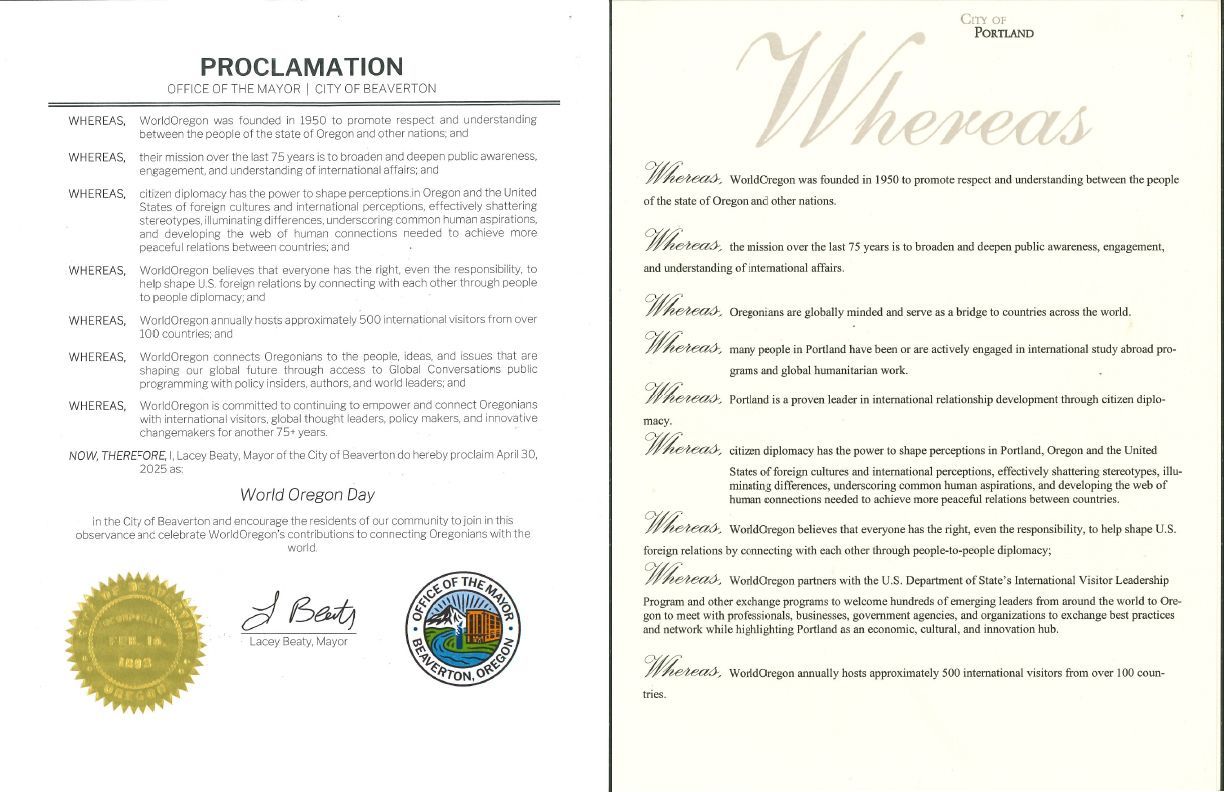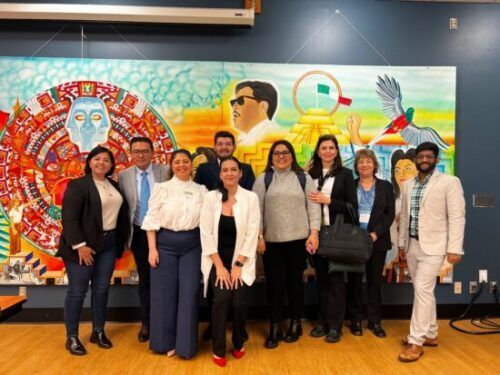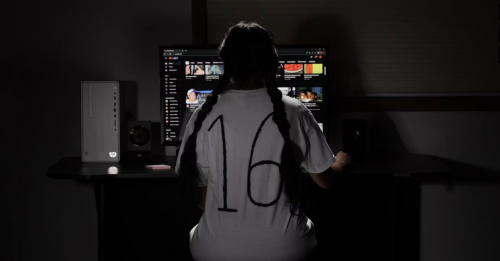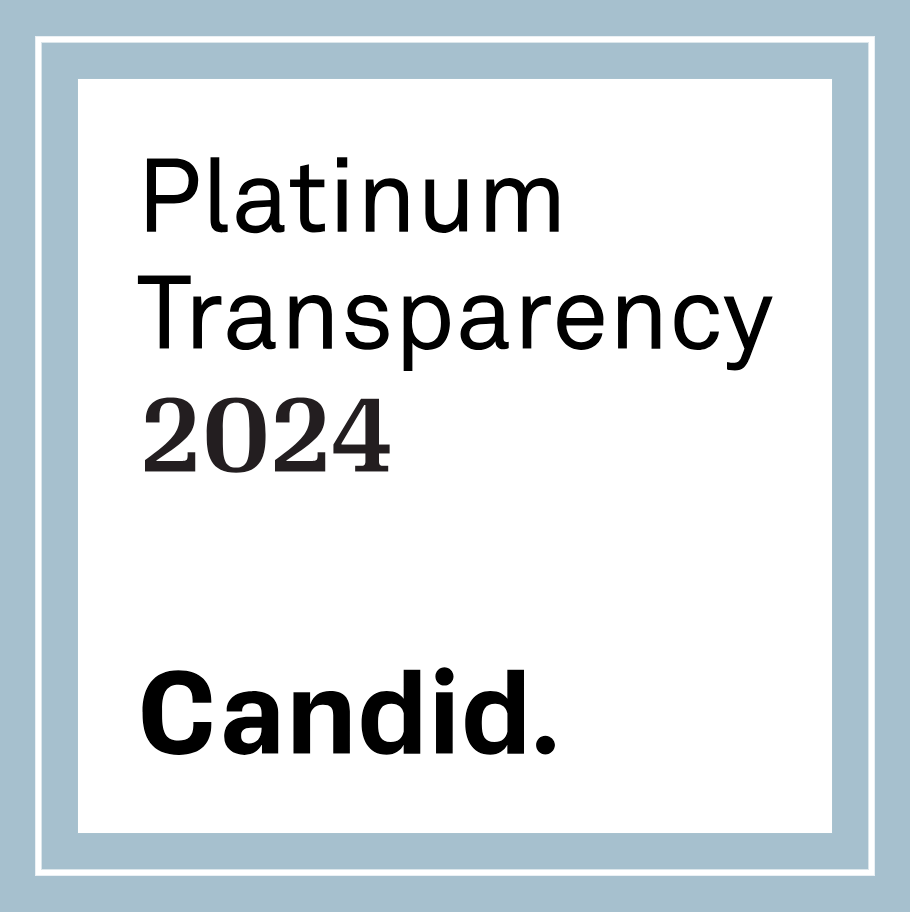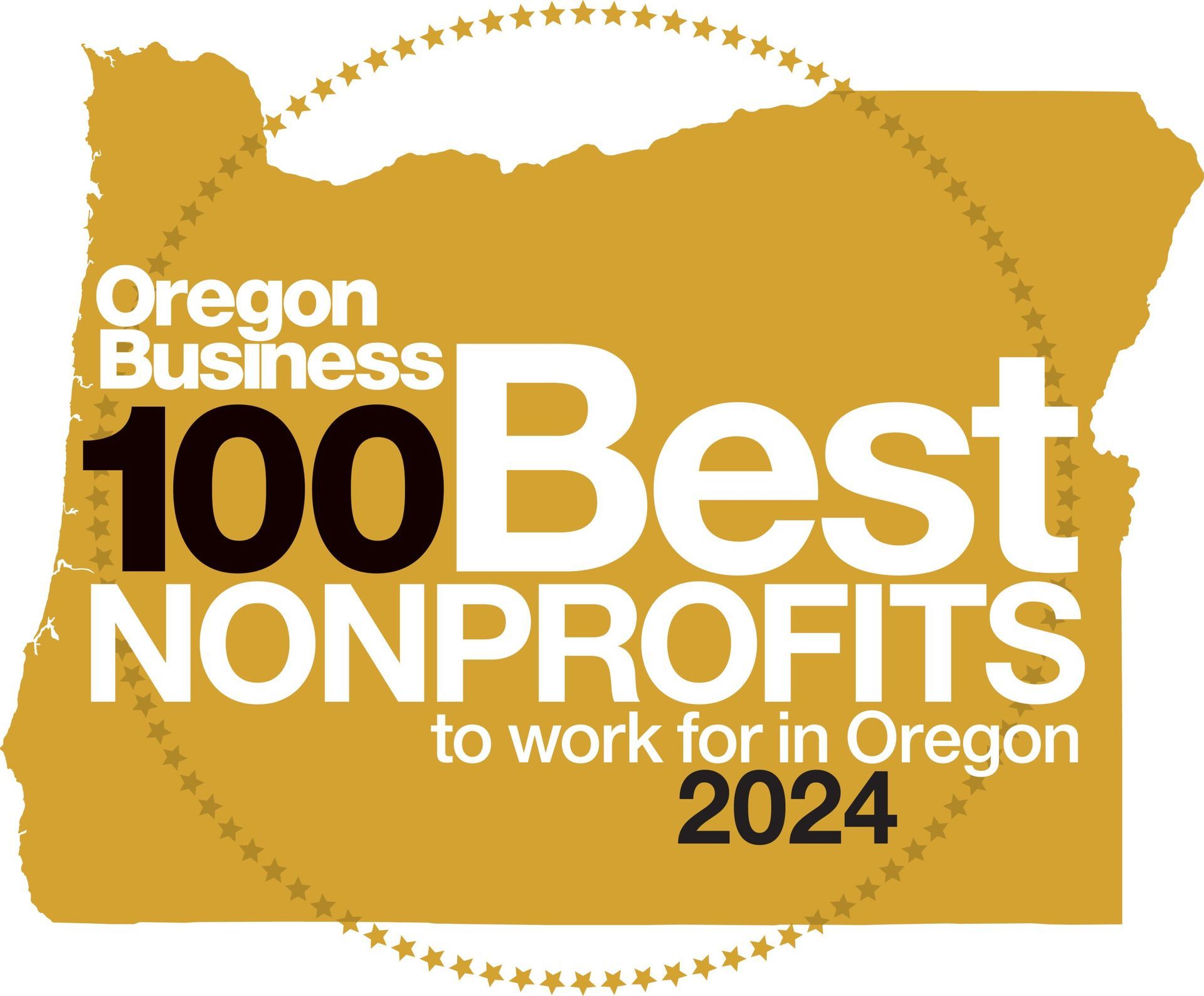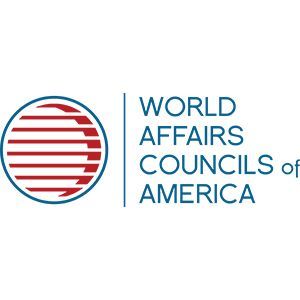Great Decisions 2025 begins in January
Join the Conversation!
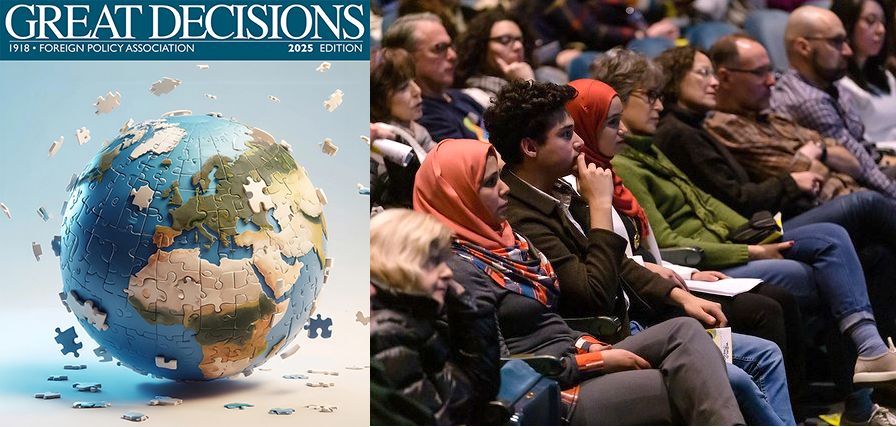
GREAT DECISIONS 2025
Fridays, January 17–March 14, 12pm PDT (Note: No event on February 14)
Portland State University
Native American Student & Community Center
710 SW Jackson, Portland, OR 97201
$60 Series Ticket for Members (a savings of $20!)
$10 Individual events for WorldOregon Members; $15 General Public
One of WorldOregon's favorite events of the year is the annual GreatDecisions series! As in previous years, this series features eight hard-hitting topics selected by the Foreign Policy Association —don't miss this year's edition of the oldest, largest grassroots, people-powered, foreign policy series in the country, which had its start here in Portland in 1953.
Copresented with Portland State University’s Office of Global Engagement and Innovation
WorldOregon members: CLICK HERE to purchase a ticket for the complete 8-part Great Decisions series —an exclusive opportunity for WorldOregon members. To register for individual events, as either a member or nonmember, click on the hyperlinks of the separate event-titles.
If you’re not a member and would like to take advantage of a $20 savings on the series (along with many other perks throughout the year) CLICK HERE to JOIN.
Friday, January 17
The Evolution of U.S. Leadership in the Global Economy
Speaker: Anna Miramanova, Assistant Professor, Economics, Lews & Clark College
Under President Biden, the U.S. has advanced new ideas about trade, technology, industrial policy, competition with China, and the organization of the world economy. For most of the postwar era, the U.S. has tied its global leadership to cooperative agendas aimed at creating a more open-world trading system, but that has apparently come to an end. What are America’s options and opportunities as a leader of the world economy? How will America’s “foreign policy for the middle class” and strategic competition with China impact its leadership role? How can the postwar rules and institutions of the world economy be made safe for economic nationalism and great power competition?
Friday, January 24
International Climate Cooperation in an Era of Geopolitical Turmoil
Speaker: Jillian Gregg, Senior Instructor, College of Agricultural Sciences, Oregon State University & Gregg B. Walker, Professor of Communication and Environmental Sciences, Oregon State University
The 2015 Paris Agreement established a UN-sponsored framework for negotiations on climate change and global warming. In subsequent COP meetings, experts and political leaders have come together seeking common cause for this growing global crisis. What is the future of these efforts, and what have they yielded? What is the U.S. role in fostering cooperation on climate change? In a divided country, what are the possible futures for American policy leadership?
Friday, January 31
American Policy in the Middle East: Taking Stock & Looking Ahead
Speaker: Joel Beinin, Professor of History and Professor of Middle East History, Emeritus
Stanford University
The war in Gaza has brought the region to a crossroads. What are the possible outcomes of the war, and how might the United States use its influence to shape a long-term settlement that leaves both Israel and the Palestinians in a better position? How might Arab states in the wider region be brought into a settlement? What are America’s interests in the Middle East and how can it advance them?
Friday, February 7
American Foreign Policy at a Crossroads
Speaker: Jane Cramer, Associate Professor, Political Science, University of Oregon
This chapter will explore the contours of the U.S. foreign policy debate as it plays out in a world of multiple and escalating crises and domestic polarization.
Friday, February 21
Competition, Cold War, or Conflict: Navigating U.S.-China Relations
Speaker: Yan Liang, Professor of Economics, Willamette University
Washington’s relations with Beijing have reached an ominous low ebb. Both American political parties have identified China as the country’s preeminent geopolitical challenger and, in the eyes of many, a systemic threat. What is driving this deterioration of Sino-American relations, and what are America’s strategic options in the face of Chinese power and ambition?
Friday, February 28
The Future of NATO and European Security
Speaker: David Kinsella, Professor of Political Science and International Studies , Portland State University
European security is more uncertain than it has been for decades. Putin’s Russia has launched a war with Ukraine on its doorstep, and America’s uncertain role as leader of NATO and security provider has been called into question with the failure of Congress to pass supplemental military support for Ukraine. What are Europe’s options, and how might developments on both sides of Western Europe – in Ukraine and across the Atlantic – impact its choices? What are America’s stakes in NATO and Europe’s strategic dilemmas?
Friday, March 7
AI and American National Security
Speaker: K S Venkatraman, AI & Technology Consultant
The AI revolution is the leading edge of a larger high-tech revolution which promises to transform the world. Experts argue that international cooperation is needed to expand the opportunities these new technologies hold while protecting societies from their dangers. What are the key policy debates in this area, and what are the opportunities and limits on global AI rules of the road? How will the AI revolution impact American national security? What are its policy options to secure the benefits of AI and guard against its dangers?
Friday, March 14
India: Between China, the West, and the Global South
Speaker: Prakash Gupta, Consul General of India, Seattle
India is an emerging major power in world affairs, occupying a pivotal position between China, the United States, and the Global South. Its population size, economy, and geopolitical location ensure that it will be an influential voice in debates and political struggles over global order. What are India’s choices and opportunities for regional and global leadership? How will it maneuver between China and the United States, and what is its role as a voice of the Global South? What opportunities exist for Washington to work with India?

